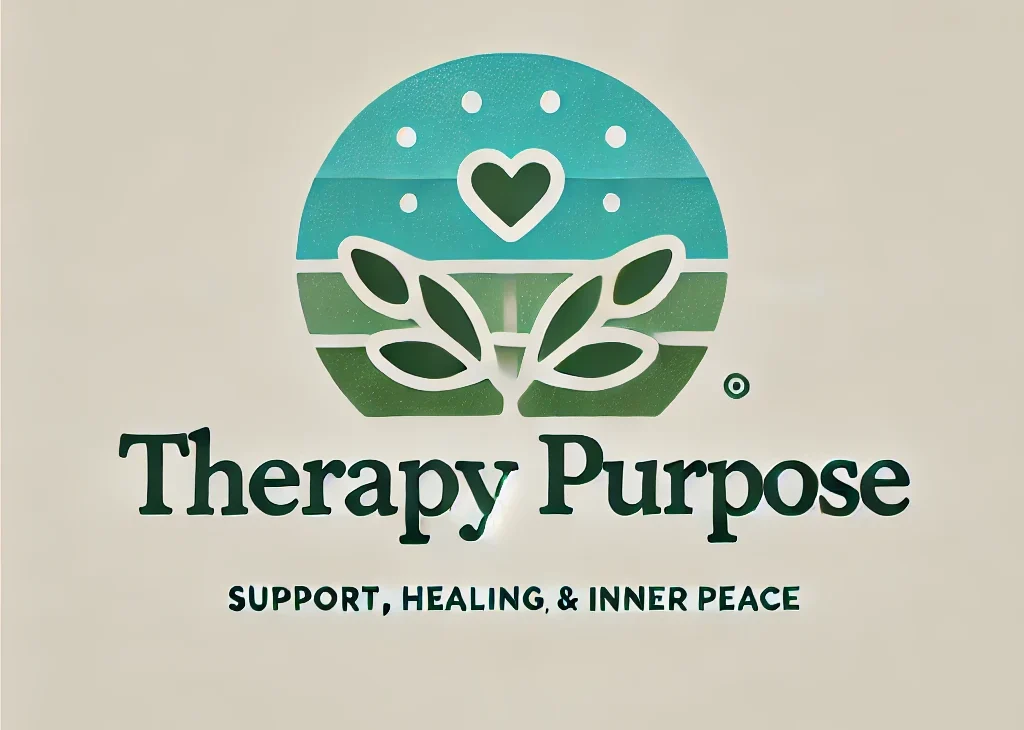If you’re seeking effective emotional regulation solutions, exploring "DBT Therapy Near Me" could be a transformative step. Dialectical Behavior Therapy (DBT) specializes in equipping individuals with essential skills to handle intense emotions, making it a vital approach for those struggling with emotional instability. This innovative therapy not only focuses on emotional regulation but also integrates mindfulness and interpersonal effectiveness, setting it apart from other therapeutic methods. As you consider your options, understanding what DBT offers can significantly enhance your mental well-being and personal growth.
What is DBT Therapy?
Dialectical Behavior Therapy (DBT) is a structured form of cognitive-behavioral therapy designed to help individuals manage emotional distress and improve interpersonal effectiveness. Initially developed by Dr. Marsha Linehan for treating borderline personality disorder, DBT has gained recognition for its versatility in addressing various mental health issues.
Key Components of DBT Therapy:
- Mindfulness: Enhances awareness of the present moment, allowing individuals to observe their thoughts and feelings without judgment.
- Distress Tolerance: Focuses on coping strategies to tolerate pain in difficult situations instead of resorting to harmful behaviors.
- Emotion Regulation: Teaches techniques to understand and manage intense emotions effectively.
- Interpersonal Effectiveness: Improves skills for maintaining relationships and setting boundaries.
Individuals often seek "DBT Therapy Near Me" to access this specialized approach, discovering local therapists who can guide them through these essential skills. By participating in DBT, people can cultivate a more balanced emotional life, leading to healthier relationships and improved overall well-being.
The Importance of Emotional Regulation
Emotional regulation is essential for maintaining mental health and well-being. It involves the ability to manage your emotional responses effectively, which can lead to improved relationships and better decision-making. Here’s why emotional regulation matters:
Improved Relationships: When you can control your emotions, you interact more positively and constructively with others. This skill fosters healthier communication, reduces conflict, and enhances connection.
Better Coping Strategies: Effective emotional regulation equips you with tools to cope with stress, anxiety, and traumatic experiences. Consequently, it helps prevent emotional outbursts or unhealthy reactions.
Enhanced Decision-Making: Regulating your emotions allows for clearer thinking. It aids in evaluating situations logically rather than through an emotional lens, leading to better choices.
If you’re seeking to strengthen your emotional regulation skills, consider looking for "DBT Therapy Near Me." This specialized approach can provide the guidance and tools necessary to enhance your emotional management abilities, ultimately enriching your personal and professional life.
Key Principles of DBT Therapy
DBT (Dialectical Behavior Therapy) is founded on several core principles that enhance emotional regulation and foster healthier coping strategies. Understanding these principles can help individuals looking for “DBT Therapy Near Me” to grasp its transformative potential. Here are the key principles:
Dialectics: This principle emphasizes the balance between acceptance and change. By validating feelings while encouraging growth, individuals learn to navigate emotional challenges more effectively.
Mindfulness: Practicing mindfulness helps individuals stay grounded in the present moment. This awareness improves emotional regulation and reduces impulsivity.
Distress Tolerance: DBT equips individuals with skills to manage crises without resorting to destructive behaviors. This resilience fosters healthier responses to stress.
Emotional Regulation: Through various strategies, DBT teaches individuals to identify and manage their emotions, thus reducing intense emotional suffering.
Interpersonal Effectiveness: This principle enhances communication skills, enabling individuals to express their needs and build healthier relationships.
In your search for “DBT Therapy Near Me,” focus on therapists who emphasize these principles, as they are crucial for achieving emotional balance and lasting change.
How DBT Differs from Other Therapies
Dialectical Behavior Therapy (DBT) stands out from other therapeutic approaches due to its unique blend of cognitive and behavioral techniques with mindfulness practices. Here’s how DBT differentiates itself:
Focus on Emotion Regulation: Unlike some therapies that address symptoms, DBT prioritizes enhancing emotional regulation skills. This empowers individuals to manage their emotions effectively.
Skills Training: DBT includes structured skills training sessions, teaching clients essential skills such as distress tolerance and interpersonal effectiveness. This framework is often missing in traditional therapies.
Validation and Acceptance: DBT fosters a non-judgmental approach, emphasizing acceptance while motivating individuals to enact change. This dual focus is not typical in many other therapeutic modalities.
Comprehensive Approach: DBT typically involves both individual therapy and group skills training, providing a holistic treatment experience.
If you’re searching for DBT therapy near me, understanding these differences can help you assess whether this approach aligns with your needs. Ultimately, seeking DBT therapy near you can lead to more effective emotional regulation and improvement in your overall mental health.
Finding DBT Therapy Near You
Searching for DBT Therapy Near Me can feel overwhelming, but a structured approach can simplify the process. Here are some effective strategies to help you locate a suitable therapist:
Online Directories: Utilize trusted platforms like Psychology Today or TherapyDen, where you can filter results by your location and therapy type.
Local Mental Health Clinics: Check nearby mental health organizations or clinics. They often have trained DBT therapists on staff who specialize in emotional regulation.
Referrals: Ask your primary care physician or other healthcare providers for recommendations. They may connect you with qualified DBT therapists in your area.
Support Groups: Join local or online support groups. Members can share their experiences and suggest therapists practicing DBT.
Insurance Provider: Contact your insurance company to inquire about covered DBT therapy options near you.
Finding DBT Therapy Near Me doesn’t have to be daunting. With these steps, you can take a proactive approach to locate the support you need for emotional regulation.
What to Expect in a DBT Session
When you seek DBT Therapy Near Me, understanding what to expect during a session can ease your anxiety and prepare you for the journey ahead. Typically, a standard DBT session includes:
Structure and Consistency: Each session generally follows a consistent format, including:
- Check-in: Brief discussions on the week’s events and emotional states.
- Skill Review: Revisiting DBT skills learned previously.
Learning and Practice: Expect a focus on specific skills or concepts, such as:
- Mindfulness: Becoming aware of your thoughts and feelings.
- Distress Tolerance: Developing techniques to cope with emotional pain.
Homework Assignments: Clients often receive tasks to apply skills between sessions, reinforcing learning and self-discovery.
Therapeutic Relationship: Your therapist will foster a supportive and non-judgmental atmosphere, encouraging open communication.
In summary, DBT Therapy Near Me sessions provide a structured yet flexible environment designed for emotional growth and regulation, empowering you to manage life’s challenges effectively.
Benefits of DBT for Emotional Regulation
Dialectical Behavior Therapy (DBT) offers valuable strategies for enhancing emotional regulation. These benefits make it a sought-after option for individuals seeking effective solutions to manage their emotions. Here are some key advantages of DBT:
- Increased Awareness: DBT helps individuals become more aware of their emotional triggers, leading to better management.
- Improved Coping Skills: Participants learn techniques to cope with distressing emotions rather than resorting to harmful behaviors.
- Enhanced Relationship Skills: DBT fosters communication skills, allowing individuals to interact more positively with others.
- Mindfulness Practice: Through mindfulness exercises, individuals learn to stay present, which reduces emotional reactivity.
When searching for "DBT Therapy Near Me," you’ll find that many programs emphasize these benefits, ensuring they tailor their approach to meet individual needs. Incorporating these skills can profoundly change how one relates to their emotions, leading to a more balanced and fulfilling life. This makes DBT an exceptional choice for anyone struggling with emotional regulation.
Success Stories: Real-Life Applications of DBT
Dialectical Behavior Therapy (DBT) has transformed the lives of many individuals struggling with emotional regulation. Here are some inspiring success stories that illustrate the effectiveness of DBT therapy:
Improved Relationships: Jane, who faced intense interpersonal conflicts, learned skills through DBT that helped her communicate better and resolve disputes, leading to healthier relationships with family and friends.
Coping with Anxiety: Mark, who dealt with crippling anxiety, found relief. By utilizing DBT techniques like distress tolerance, he managed his panic attacks and regained control over his daily activities.
Dealing with Self-Harm: Sarah struggled with self-harm urges. After engaging in DBT, she implemented mindfulness strategies that significantly reduced these urges and promoted healthier coping mechanisms.
Choosing DBT therapy near me can lead to similar breakthroughs. Individuals report feeling more equipped to manage their emotions and navigate life’s challenges effectively.
These success stories highlight the profound impact of DBT, encouraging others to seek DBT therapy near me as a viable path toward emotional wellness.
Tips for Choosing a DBT Therapist
Finding the right therapist for Dialectical Behavior Therapy (DBT) is crucial for effective emotional regulation. Here are some tips to help you choose the best DBT therapist near you:
Verify Qualifications: Ensure the therapist is trained in DBT and holds relevant certifications. They should have a solid understanding of its principles and practices.
Experience Matters: Look for a therapist with experience in treating your specific issues, such as anxiety, depression, or borderline personality disorder.
Therapeutic Style: Consider the therapist’s approach. Some therapists focus on skills training while others emphasize emotional validation. Choose one that resonates with you.
Read Reviews: Check online reviews and testimonials to gauge patient satisfaction. This can provide insights into their effectiveness and interpersonal style.
Consultation: Schedule a consultation to discuss your needs. This initial meeting helps you assess your comfort level and compatibility with the therapist.
Consider Logistics: Think about location and availability. Finding DBT Therapy Near Me can save you time and make attendance easier.
By following these tips, you can find a DBT therapist who meets your needs and supports your journey toward emotional regulation.
Resources for Further Reading on DBT Therapy
If you’re seeking to deepen your understanding of DBT therapy, several resources can enhance your knowledge and support your journey. Here’s a concise list to get you started:
Books:
- "Cognitive-Behavioral Treatment of Borderline Personality Disorder" by Marsha Linehan
- "DBT Skills Training Manual" by Marsha Linehan
Websites:
- Behavioral Tech: Offers extensive information on DBT and training resources.
- Linehan Institute: Provides valuable research articles and updates on DBT developments.
Online Courses:
- Platforms like Coursera and Udemy offer courses on DBT principles and practices, which can be helpful if you prefer a structured learning environment.
Support Groups:
- Local and online support groups can offer shared experiences and strategies related to DBT. Searching for DBT therapy near me can help you locate these groups.
Using these resources will not only inform your understanding but also empower you to make knowledgeable decisions about your emotional regulation journey.


